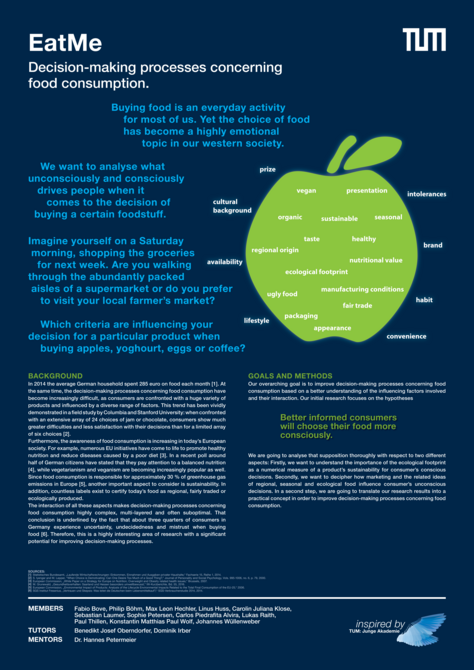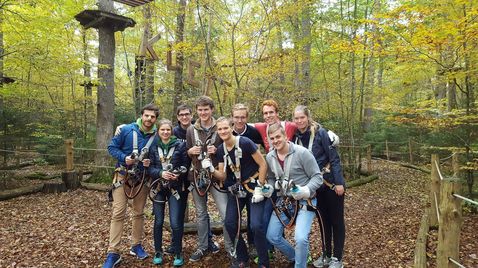Our mission
Imagine you were on a Saturday morning, shopping for groceries for the following week. Did you walk through the abundantly packed aisles of a supermarket, or did you prefer to visit your local farmer’s market? Which criteria influenced your decision for a particular product when buying apples, yogurt, eggs, or coffee? Which factors made your decision-making processes difficult or unsuccessful?
These were the key questions our diverse and motivated project team intended to address during the academic year. We began our work by investigating the data and experience that already existed in this area. We planned to test our hypotheses by conducting our own quantitative research. Based on this thorough and systematic groundwork, we aimed to propose and develop our own solutions to improve decision-making processes concerning the food industry.
Up to that point, we had identified two promising and concrete topics, which one half of the team each planned to pursue, aiming to streamline our project work. The first focused on the ecological footprint of a grocery product, encompassing all the resources consumed during the making, transport, and disposal of a product and its packaging. We intended to examine the importance of this measure for a consumer’s grocery purchases and investigate how the ecological footprint of a food item could be quantified. By making this data available to the customer in the supermarket, we aimed to increase transparency and improve their decision-making processes. Our ultimate goal was to demonstrate the successful realization with a specific product, ideally by developing an easy-to-use smartphone application.
The second topic pertained to the in-depth examination of consumers’ decision-making processes when purchasing a grocery product. We wanted to investigate the criteria influencing these decisions, such as pricing, greenhouse gas emissions, nutritional value, marketing, regional origin, organic farming, or fair trade certification. Moreover, we were eager to analyze factors like insufficient transparency, an oversupply of perhaps contradictory information, or a lack of alternative choices as barriers for successful decision-making processes.

